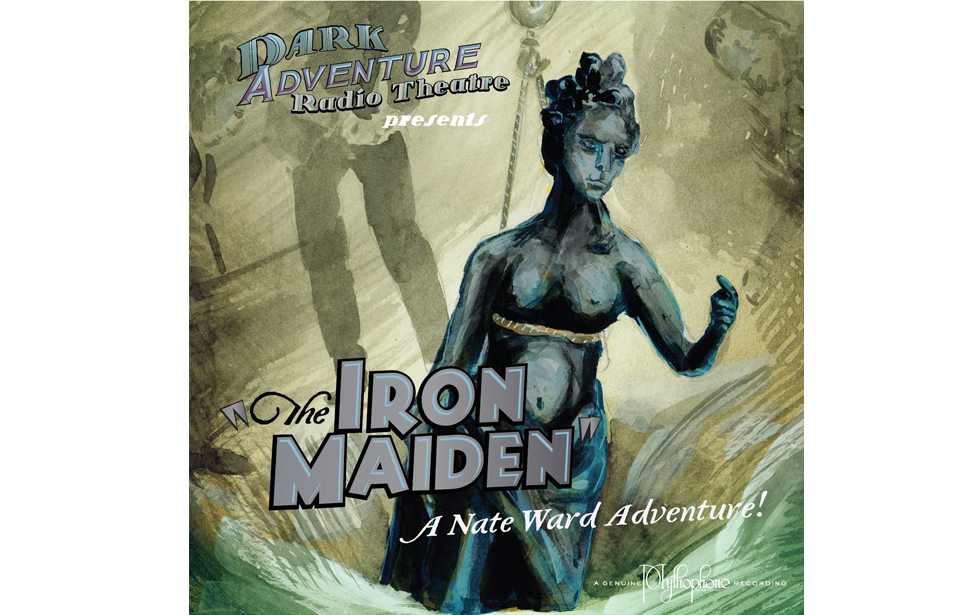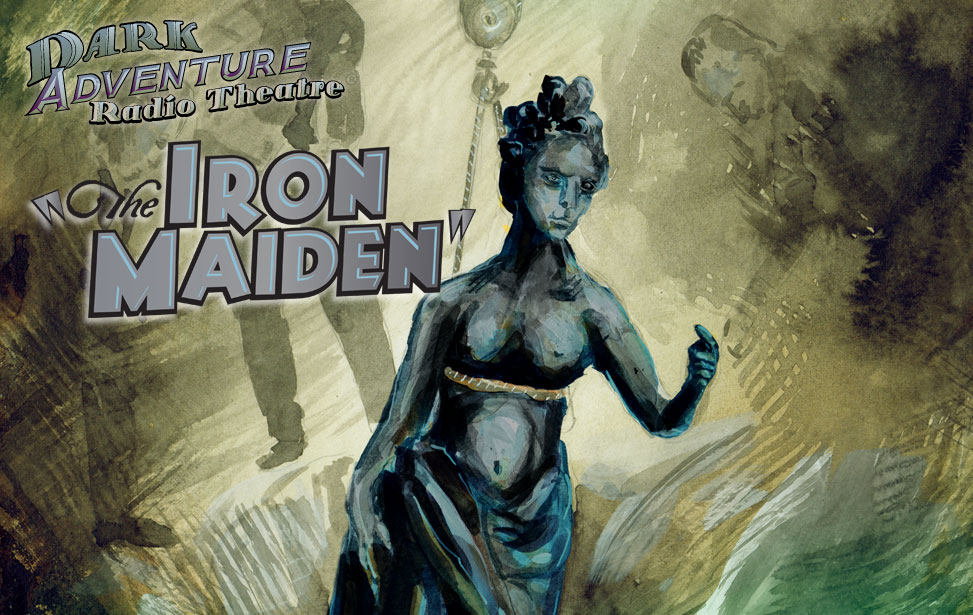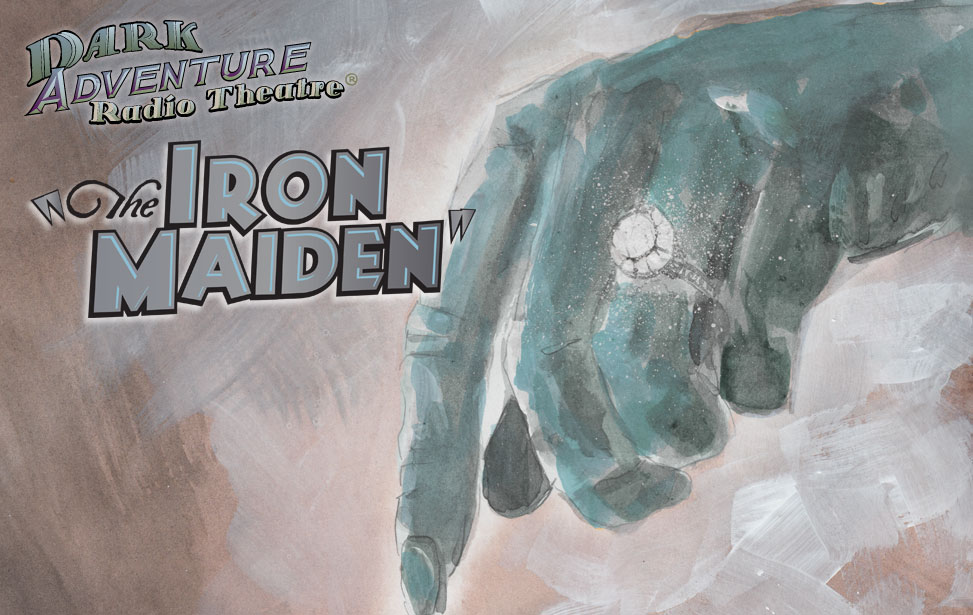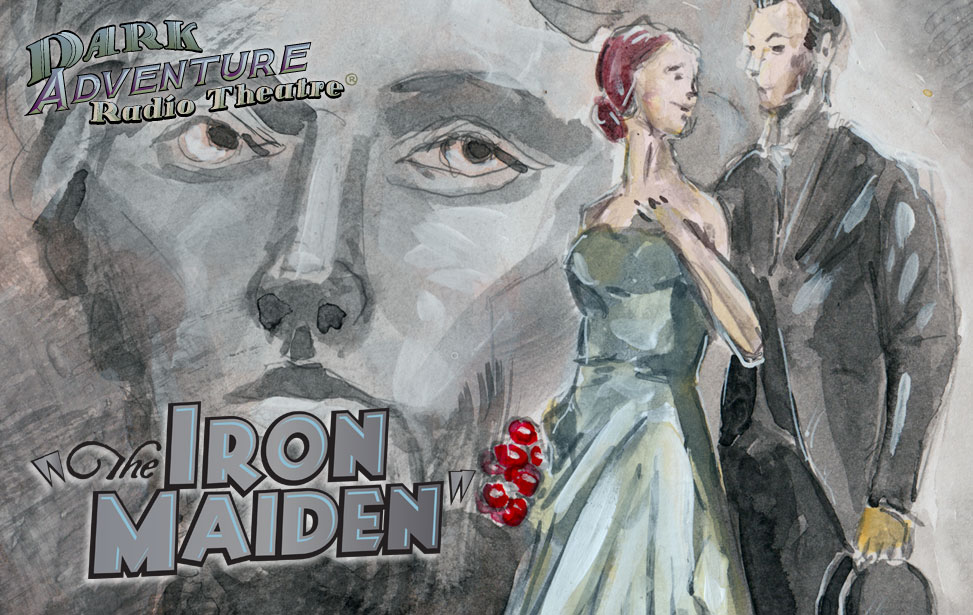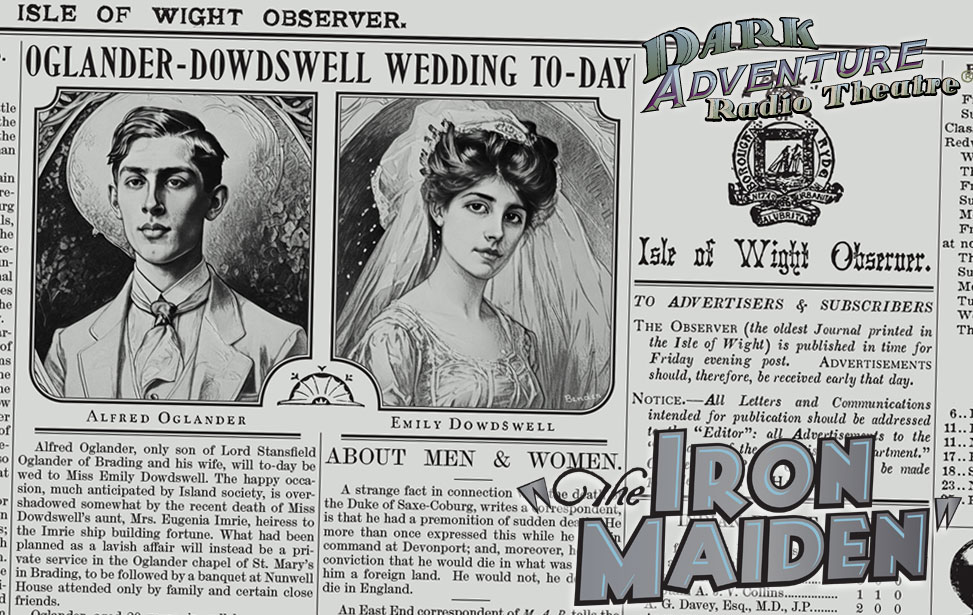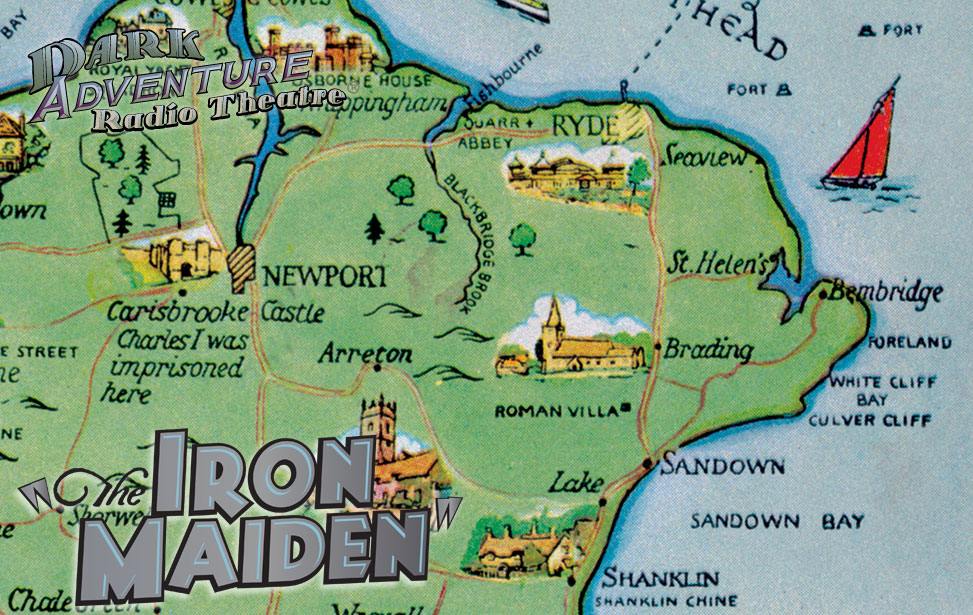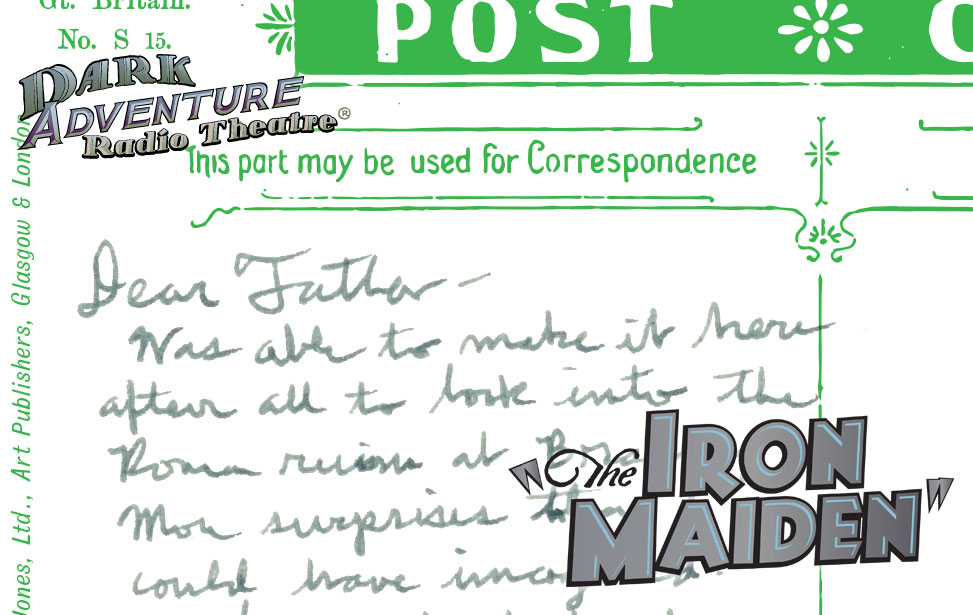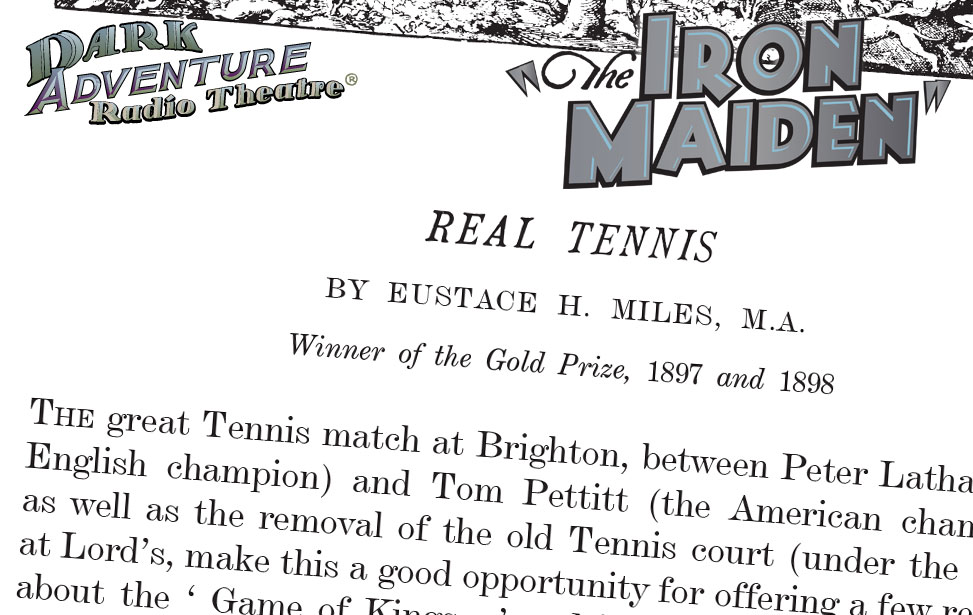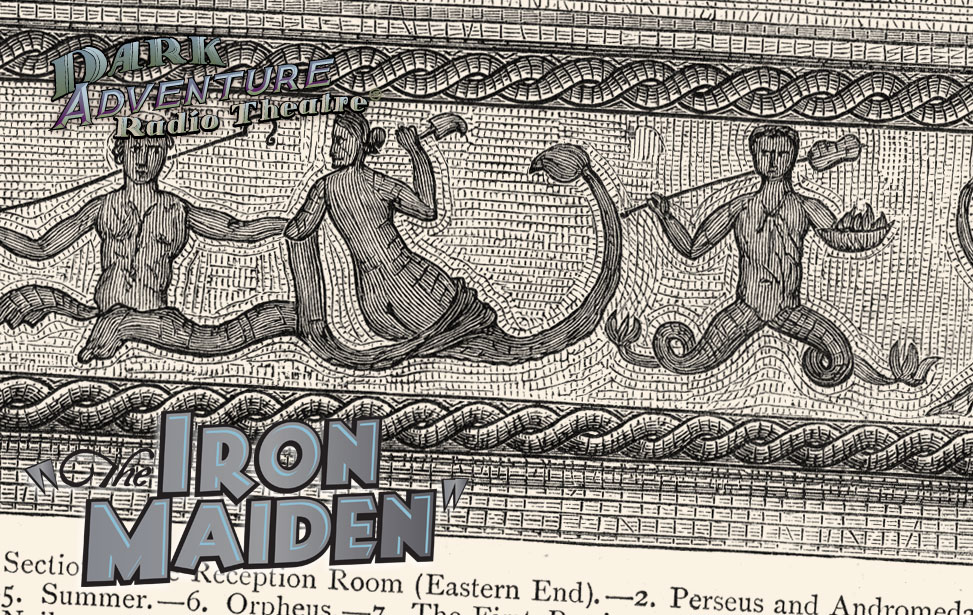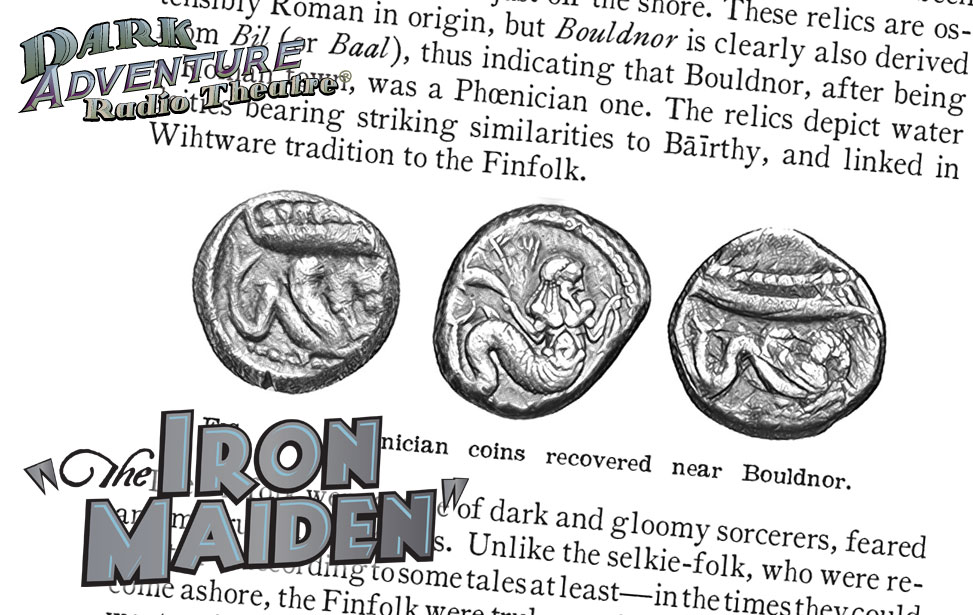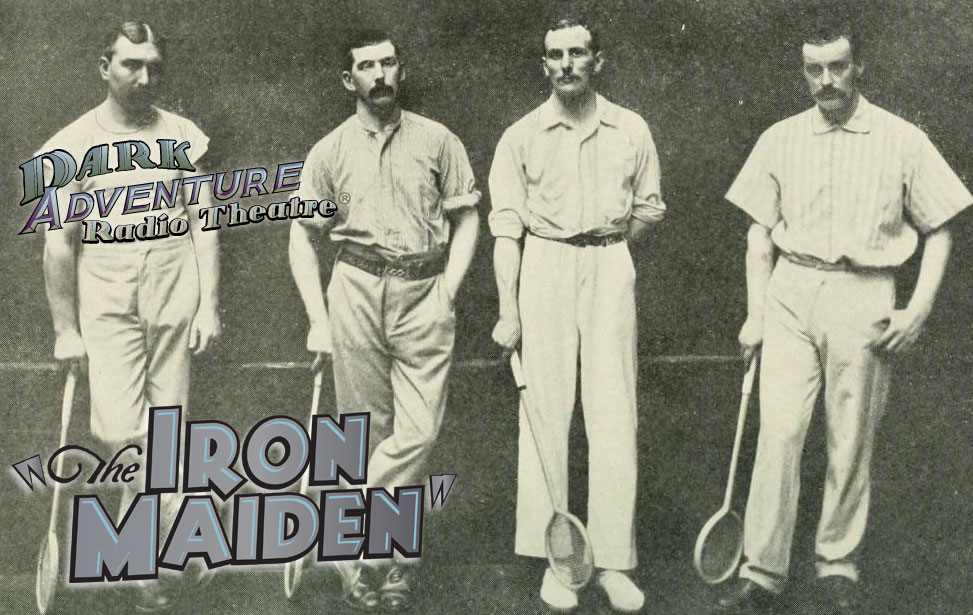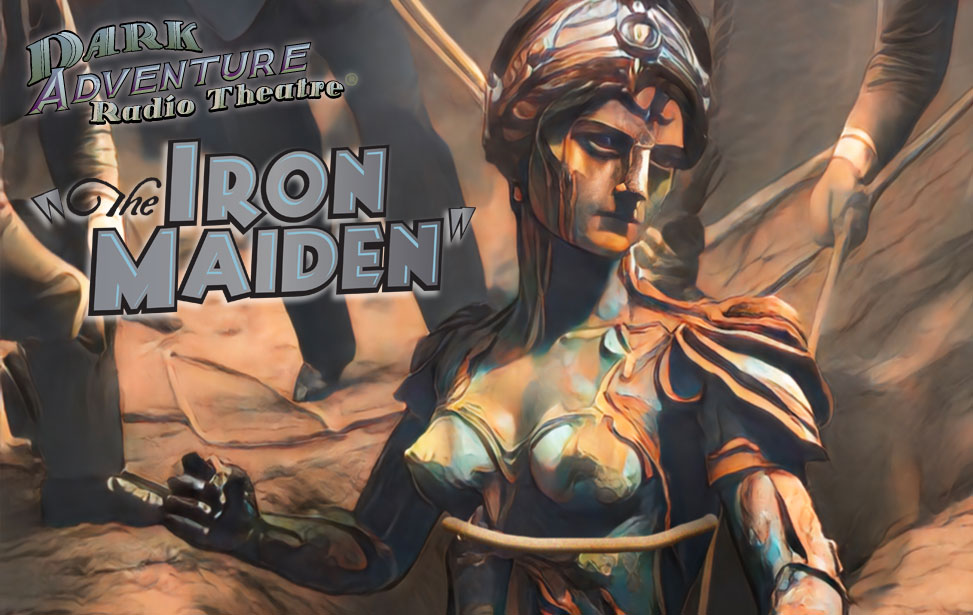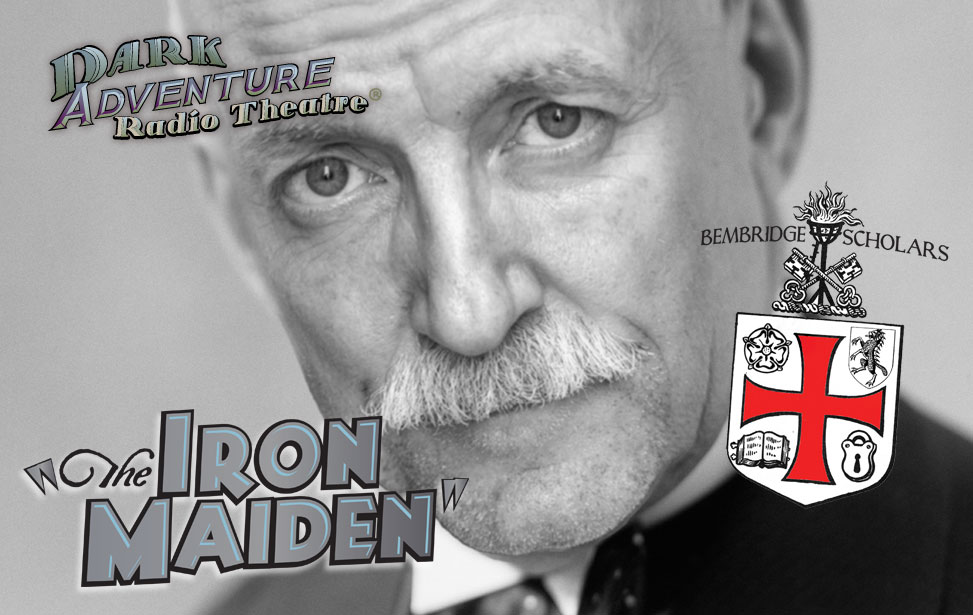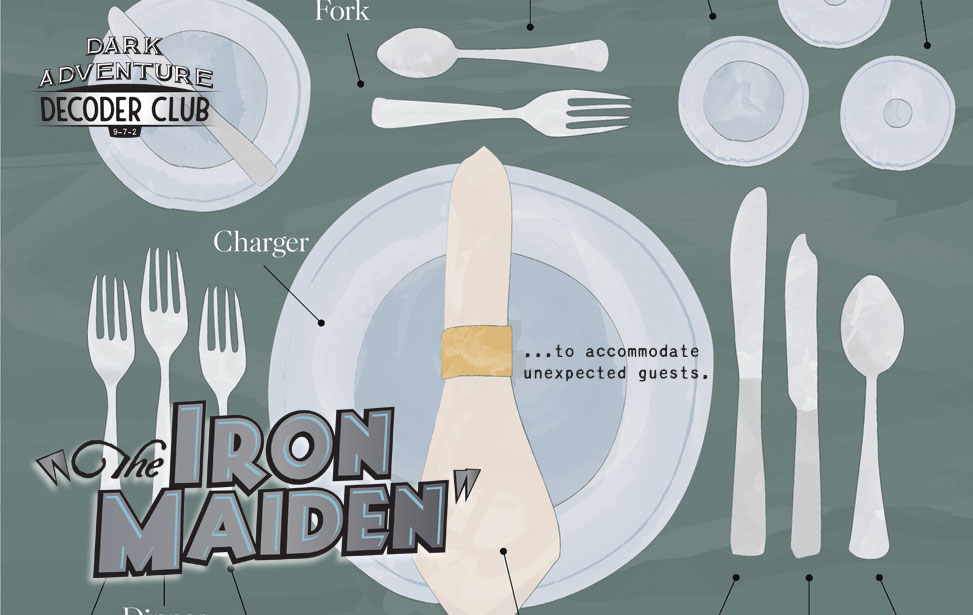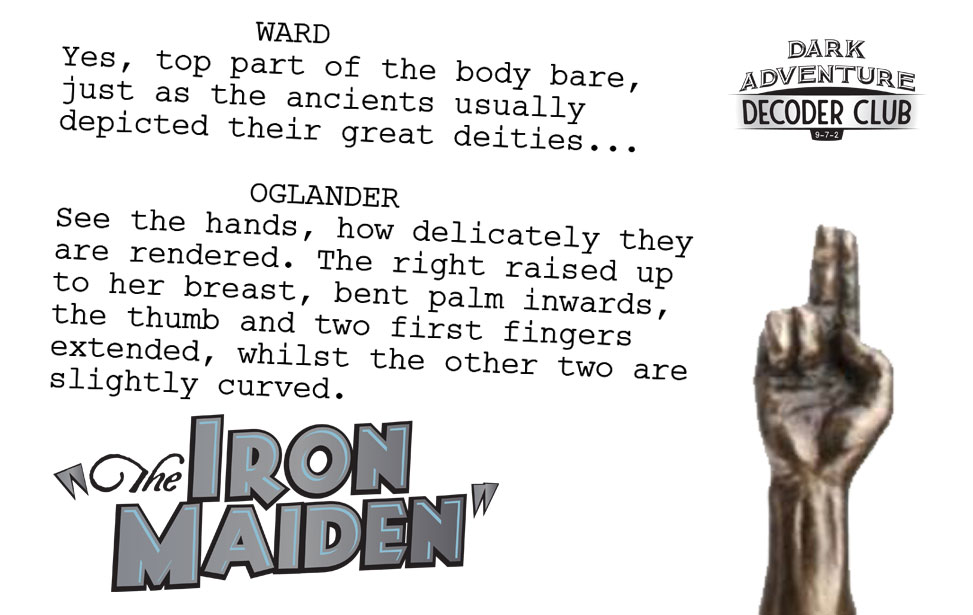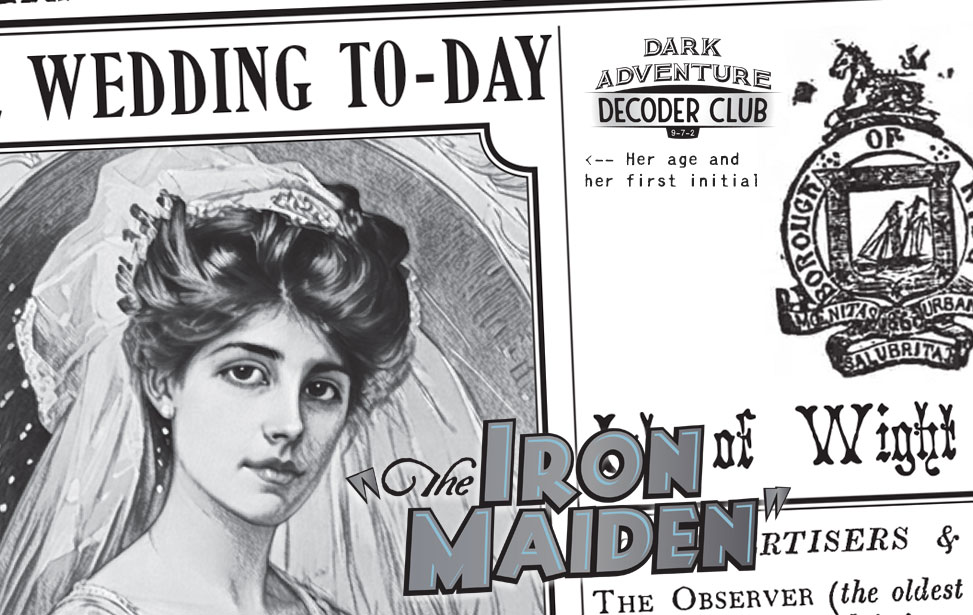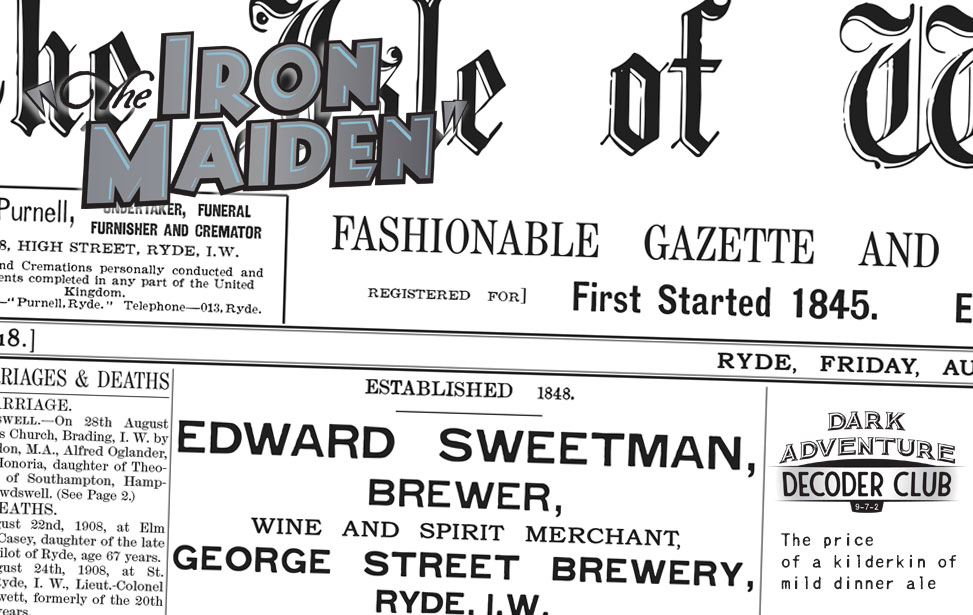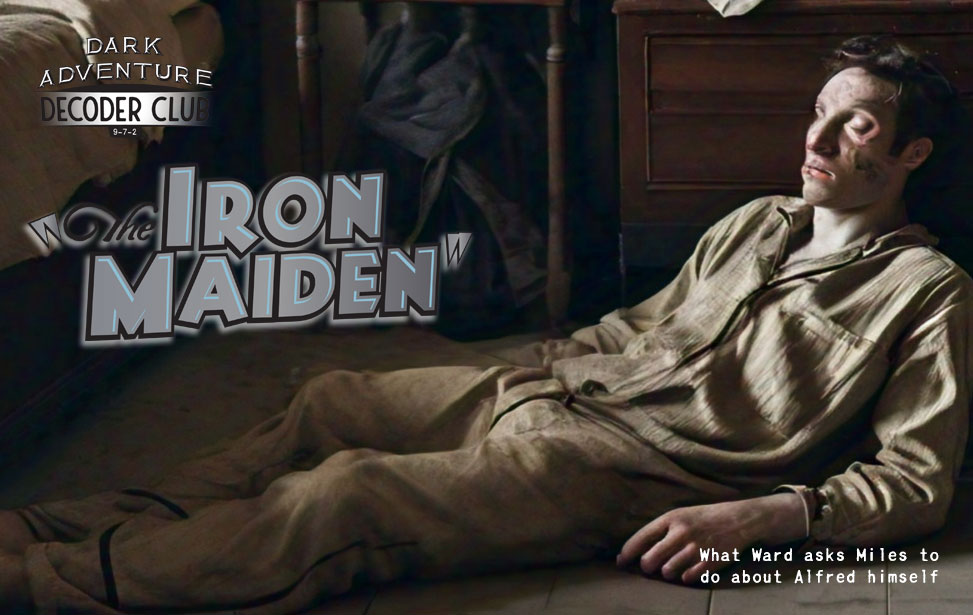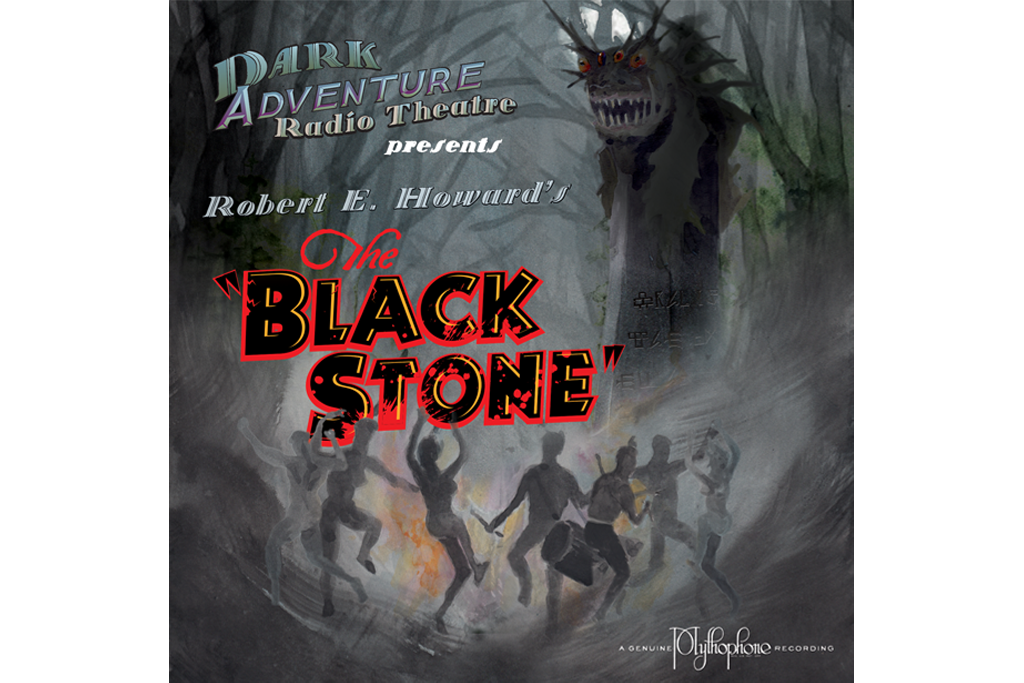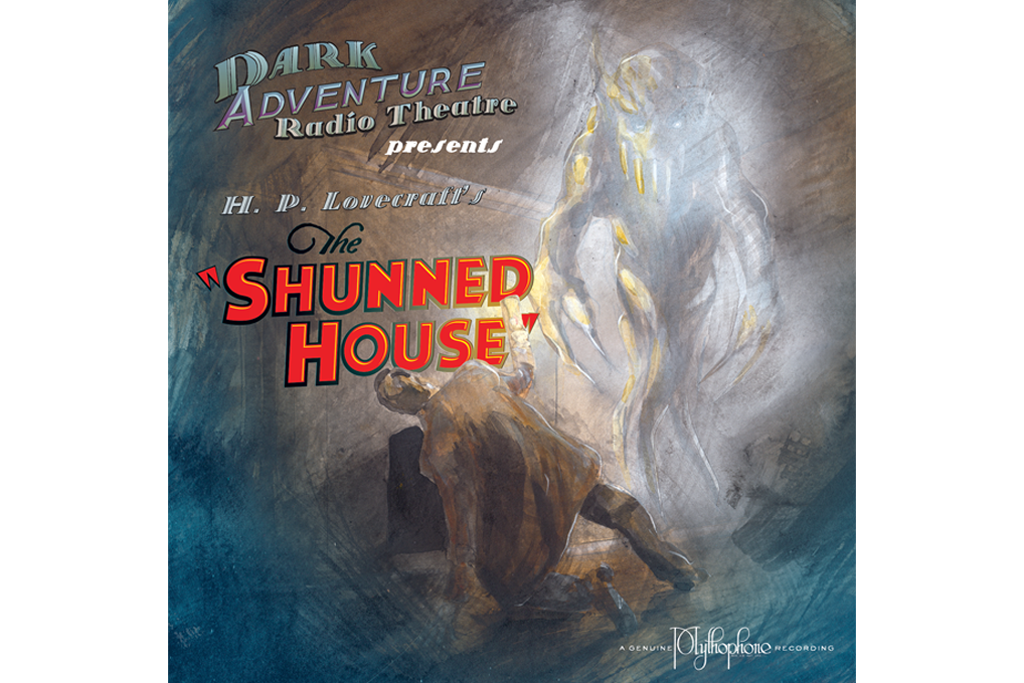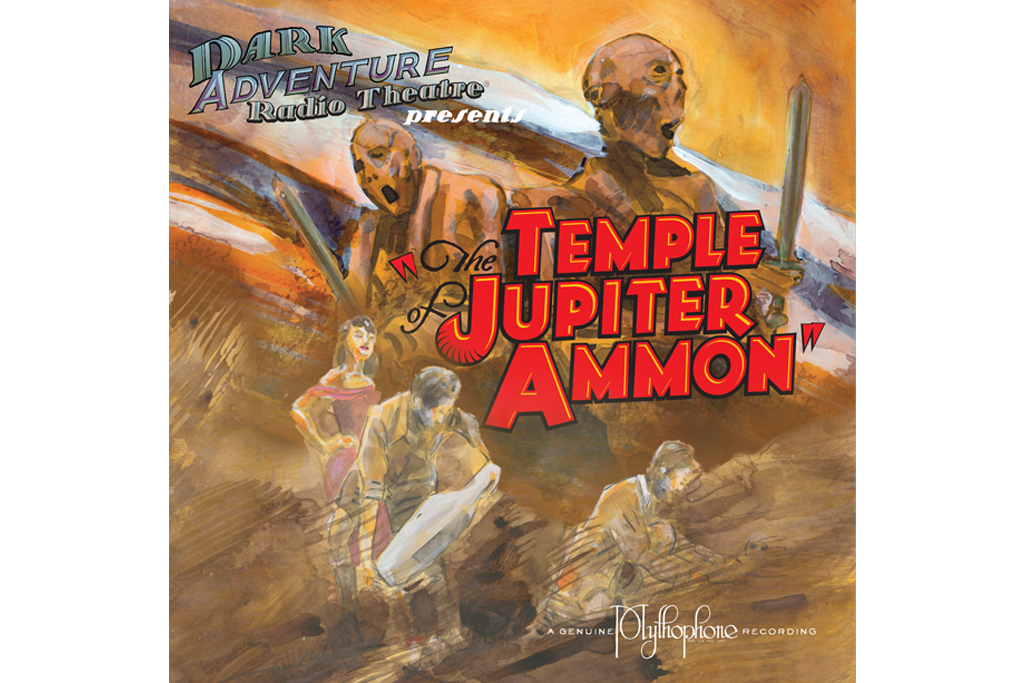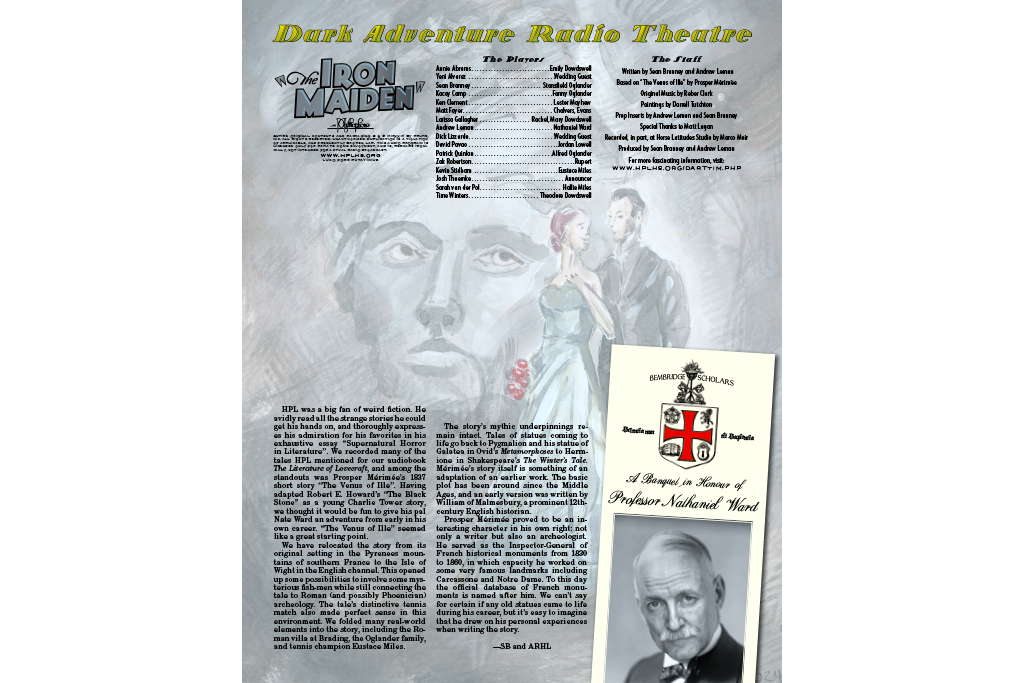The Iron Maiden
Just a few years after being hired to teach at Miskatonic University, young Nate Ward uses his summer vacation to visit the Isle of Wight and examine some curious ancient ruins. While there he makes a surprising discovery on the estate of a local landowner. Will it bode well for the family, or has he unearthed inexplicable misery and woe?
Get it now!Props
To enhance your listening pleasure, the HPLHS has packed the binder sleeve for The Iron Maiden with carefully created props from the story. You'll get:
Track Listing
1. Opening 2:52
2. The Estate 14:00
3. The Discovery 13:10
4. The Couple 10:22
5. The Game 7:52
6. The Nuptials 9:06
7. The Consummation 13:12
8. Closing 1:26
Total Runtime 72:01
Cast and Crew
Annie Abrams...Emily Dowdswell
Yeni Alvarez...Wedding Guest
Sean Branney...Lord Stansfield Oglander
Kacey Camp...Lady Fanny Oglander
Ken Clement...Lester Mayhew
Matt Foyer....Chalvers, Evans, George
Larissa Gallagher...Rachel, Mary Dowdswell
Andrew Leman...Nathaniel Ward
Dick Lizzardo...Wedding Guest
David Pavao...Jordan Lowell
Patrick Quinlan...Alfred Oglander
Zak Robertson...Tommy
Kevin Stidham...Eustace Miles
Josh Thoemke...Announcer
Sarah van der Pol...Hallie Miles
Time Winters...Theodore Dowdswell
Written by Sean Branney & Andrew Leman
Based on "The Venus of Ille" by Prosper Mérimée, translated by George Burnham Ives
Original Music by Reber Clark
"Salut d'Amour" by Edward Elgar, performed by @benchfiddler
"Bridal Chorus" by Richard Wagner
"Wedding March" by Felix Mendelssohn
"Arrival of the Queen of Sheba" and "Water Music" by George Frideric Handel
"Prelude" by Joseph Haydn
Paintings by Darrell Tutchton
Prop Inserts by Andrew Leman & Sean Branney
Special thanks to Matt Lagan
Recorded, in part, at Horse Latitudes Studio by Marco Moir
Produced by Sean Branney and Andrew Leman
Script, Liner Notes & More
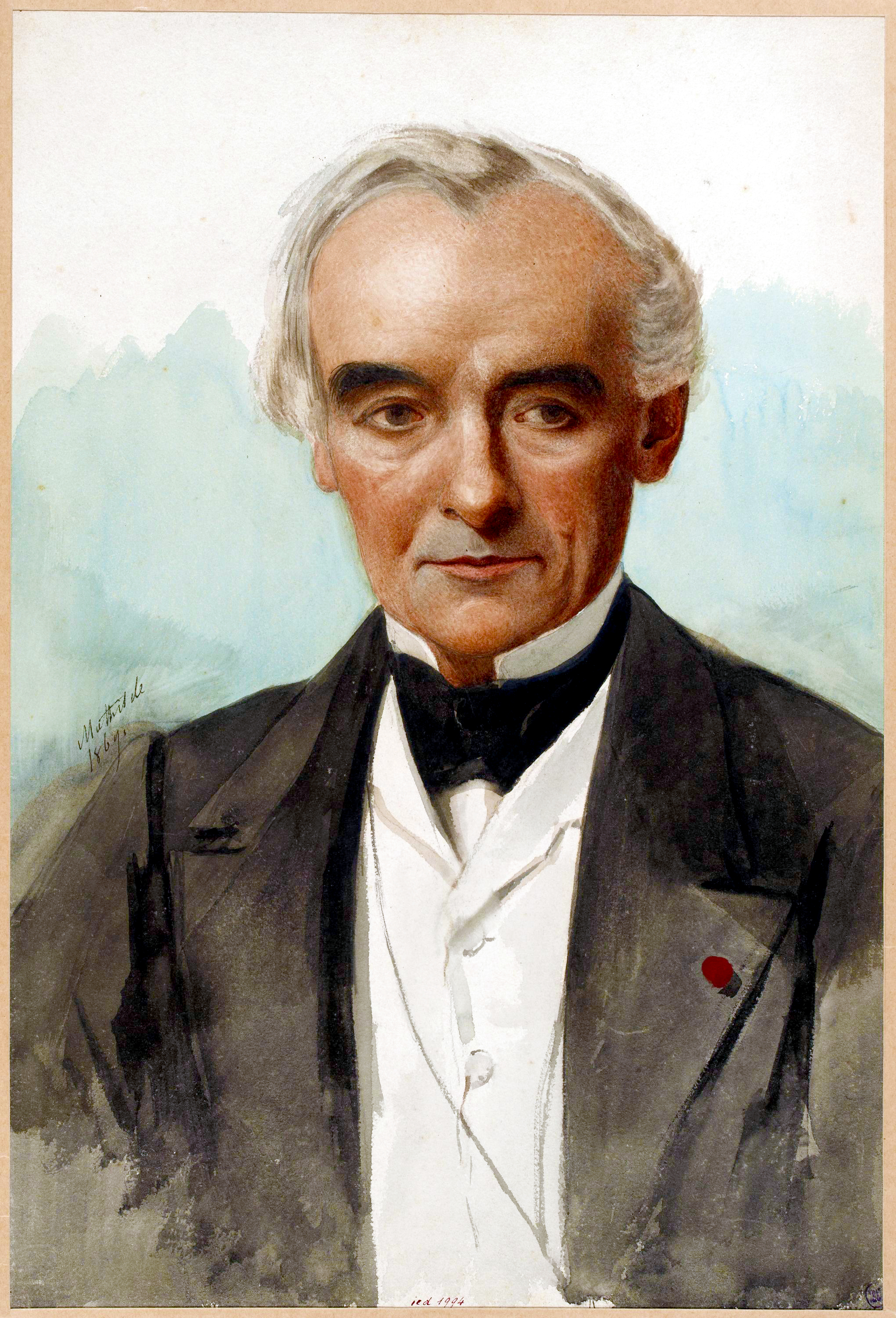 Prosper Mérimée, 1803–1870, was not only a writer of novellas and short stories, but he was also himself an archeologist and pioneer in the preservation of historical sites. From 1830 to 1860 he was the Inspector-General of French historical monuments, and oversaw the restoration of the facade of Notre Dame cathedral. He also discovered some now-famous 15th-century French tapestries depicting a lady and some unicorns. One imagines the unnamed narrator of "La Vénus d'Ille", which he wrote in 1837, was modeled on himself.
Prosper Mérimée, 1803–1870, was not only a writer of novellas and short stories, but he was also himself an archeologist and pioneer in the preservation of historical sites. From 1830 to 1860 he was the Inspector-General of French historical monuments, and oversaw the restoration of the facade of Notre Dame cathedral. He also discovered some now-famous 15th-century French tapestries depicting a lady and some unicorns. One imagines the unnamed narrator of "La Vénus d'Ille", which he wrote in 1837, was modeled on himself.
As a writer he is perhaps most famous for the novella Carmen, which was the basis for the famous opera by Georges Bizet, among other things. Lovecraft mentions him in "Supernatural Horror in Literature", but admits in letters that when he did that he had not yet actually read "The Venus of Ille".
The Roman Villa at Brading dates from the first century A.D., but no one knows who built it or who lived in it. It was buried by time and only rediscovered by a farmer plowing his field in 1879. The Oglanders were a real family who owned part of the land, and they opened the villa to the public for many years. In 1994 it was donated to a charitable trust that built a museum around it, and it is now a tourist attraction. It really does have some peculiar mosaics.
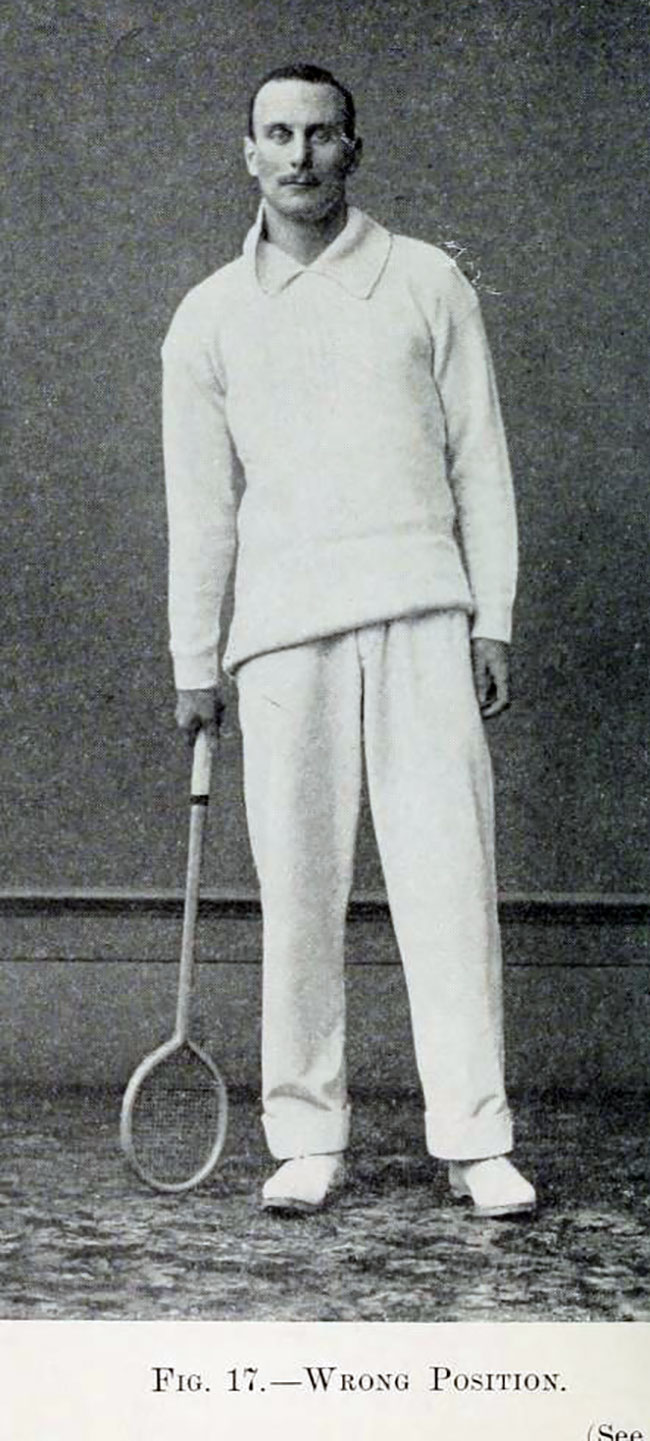 Eustace Miles was a real person, and he really did win the silver medal in "Real Tennis" at the 1908 summer Olympics in London, losing the gold to American Jay Gould II, heir to the Gould railroad fortune. In addition to being a world-class athlete, Miles wrote books about healthy living, vegetarianism, reincarnation and happiness. He ran a successful vegetarian restaurant for a time, and with his wife Hallie engaged in philanthropy helping the poor of London. Hallie was an author in her own right. Miles also knew a thing or two about the history of the Roman occupation of Great Britain. He was a lifelong friend of British novelist E.F. Benson, who wrote a number of well-regarded "spook stories", very favorably mentioned by HPL in "Supernatural Horror in Literature".
Eustace Miles was a real person, and he really did win the silver medal in "Real Tennis" at the 1908 summer Olympics in London, losing the gold to American Jay Gould II, heir to the Gould railroad fortune. In addition to being a world-class athlete, Miles wrote books about healthy living, vegetarianism, reincarnation and happiness. He ran a successful vegetarian restaurant for a time, and with his wife Hallie engaged in philanthropy helping the poor of London. Hallie was an author in her own right. Miles also knew a thing or two about the history of the Roman occupation of Great Britain. He was a lifelong friend of British novelist E.F. Benson, who wrote a number of well-regarded "spook stories", very favorably mentioned by HPL in "Supernatural Horror in Literature".
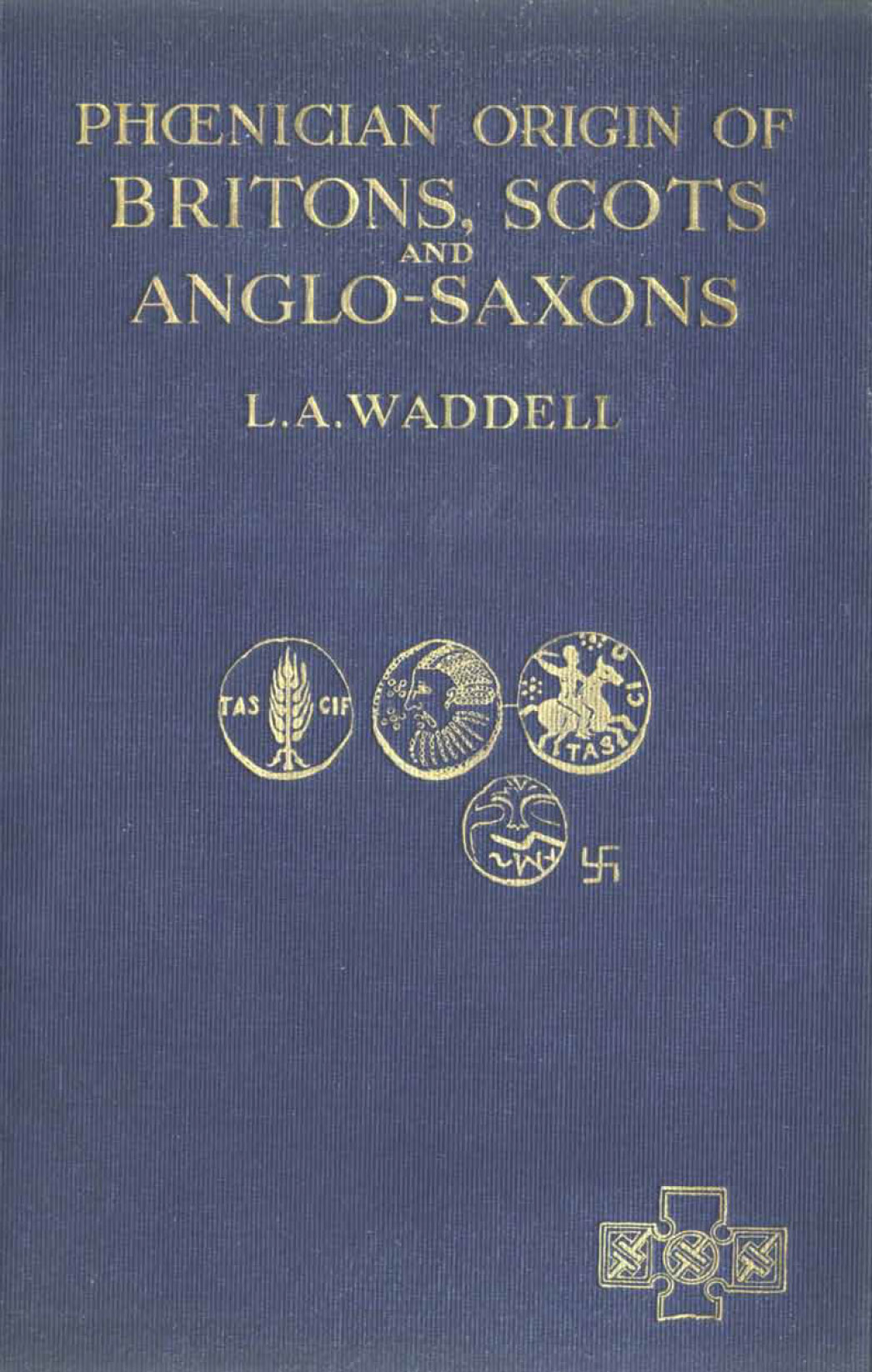 The idea that the ancient Phoenicians colonized Britain was abundantly explored in this 1924 book by Laurence Austine Waddell. Waddell is one of the many people thought to be a real-life inspiration for Indiana Jones. A genuinely accomplished Indian army officer and explorer, he enthusiastically promoted some rather fringe ideas of the history of civilizations, and his books have quite a lot of swastikas and references to Aryan culture which haven't aged particularly well.
The idea that the ancient Phoenicians colonized Britain was abundantly explored in this 1924 book by Laurence Austine Waddell. Waddell is one of the many people thought to be a real-life inspiration for Indiana Jones. A genuinely accomplished Indian army officer and explorer, he enthusiastically promoted some rather fringe ideas of the history of civilizations, and his books have quite a lot of swastikas and references to Aryan culture which haven't aged particularly well.
Mérimée's story has been adapted several times before. There is an episode of the 1934 radio show The Witch's Tale entitled "The Bronze Venus" which you can listen to above. Mario Bava's last film was a 1979 Italian television adaptation of the story. It was also used as part of the basis for the film The Twilight of the Ice Nymphs by friend of the HPLHS Guy Maddin.
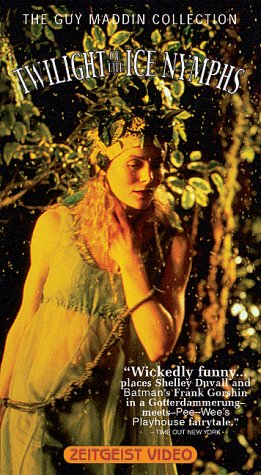
For your enjoyment, we present free PDF downloads of the final recording script and liner notes of "The Iron Maiden". Note: this script is only for use for reading along with Dark Adventure Radio Theatre®; no publication or performance of the script may be made without written consent of the HPLHS.
